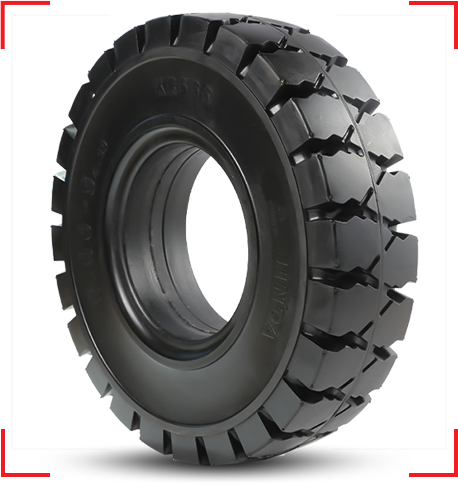The durability of standard solid tires is a defining feature that sets them apart from other tire options. These tires are built to withstand the challenging conditions encountered in forklift operations, including rough surfaces, heavy loads, and constant movement. The solid construction ensures that standard solid tires are impervious to punctures and leaks, eliminating the risk of unexpected tire failures and reducing downtime. With their exceptional durability, these tires offer extended service life, reducing the frequency of tire replacements and minimizing maintenance costs.
Standard solid tires provide outstanding stability and load-bearing capacity, contributing to safe and efficient material handling operations. The solid construction and specialized tread patterns of these tires ensure optimal traction and grip, even on slippery surfaces. This enhanced stability minimizes the risk of tip-overs and accidents, promoting a secure working environment for both operators and goods being transported. Furthermore, standard solid tires are designed to handle heavy loads, enabling forklifts to carry substantial weights with stability and confidence.
One of the key advantages of standard solid tires is their versatility and compatibility with various forklift models and applications. These tires are available in a wide range of sizes, allowing for precise matching to the specific requirements of different forklift types. Whether it's indoor warehousing, outdoor construction sites, or mixed surface environments, standard solid tires can adapt to diverse operating conditions. This versatility ensures that forklift operators can rely on the consistent performance of their equipment across different applications.
Standard solid tires significantly reduce maintenance needs and associated downtime. Unlike pneumatic tires, which require regular monitoring of air pressure and are prone to punctures and leaks, solid tires eliminate the need for such maintenance tasks. The solid construction ensures consistent tire pressure, reducing the risk of sudden tire failure and the resulting operational disruptions. With minimal maintenance requirements, forklift operators can optimize their time and resources, focusing on core operations and maximizing productivity.
Investing in standard solid tires offers long-term cost-effectiveness and value. While the initial investment may be higher compared to other tire options, the extended lifespan and reduced maintenance needs of solid tires result in long-term savings. The durability and reliability of standard solid tires minimize the frequency of tire replacements, reducing operational costs and increasing the return on investment. Furthermore, the minimized downtime associated with solid tires translates into enhanced productivity and increased efficiency, further contributing to overall cost savings.
Standard solid tires prioritize safety in forklift operations. The stability, traction, and load-bearing capacity of these tires contribute to a secure working environment, reducing the risk of accidents and injuries. Forklift operators can have confidence in the reliable performance of standard solid tires, allowing them to focus on their tasks without concerns about tire failures or compromised stability.




 Français
Français
 عربى
عربى
 Español
Español















